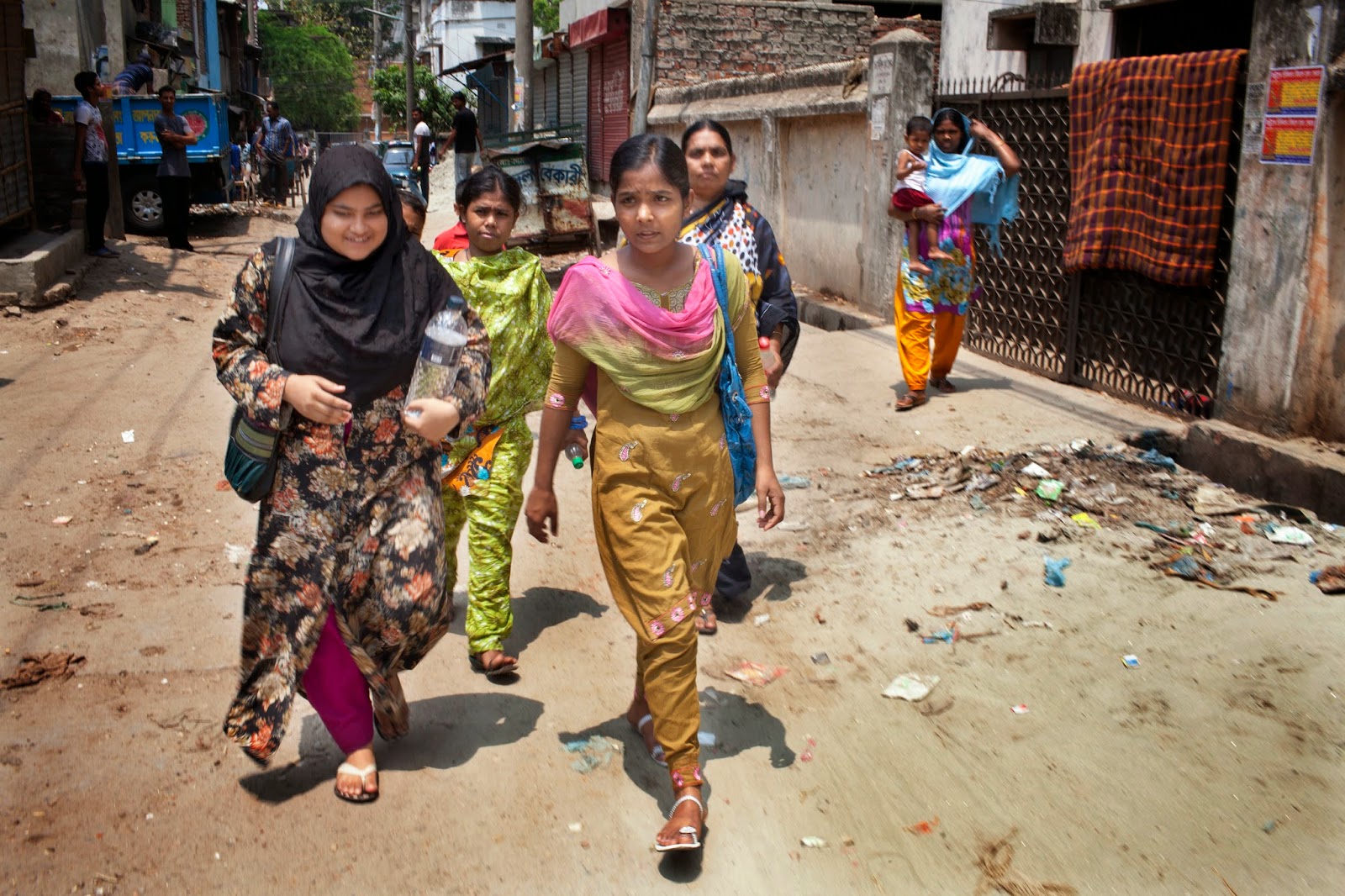Mohammad Javed is an Urdu-speaking entrepreneur living in
the middle of Dhaka, the capital city of Bangladesh. Looking to grow his
business, Mohammad decided to travel to India to start importing spare
auto-rickshaw parts for his own repairs and to sell to others. Yet Mohammad was
unsure of the process through which he could obtain a passport. He was also
intimidated to approach the passport authority office. While a landmark 2008
High Court judgment confirmed Urdu-speakers’ Bangladeshi citizenship and ended
their 40 year struggle with statelessness, Mohammad had heard stories of fellow
Urdu-speakers being denied passports due to their identity and residence in
urban “camps” established by the ICRC after Bangladesh became independent in
1971.
A continent away, Yusuf is a 19-year-old of Nubian ethnicity
living in the Kibera slum outside Nairobi, Kenya. Yusuf wanted a birth
certificate to access basic services and to reinforce his identity as a Kenyan
citizen. For three months, he tried to apply for a birth certificate on his
own. He repeatedly went to the relevant government office, which required a
trip into town, but each attempt to apply was met with harsh treatment and
requests for additional supporting documents beyond those required of most
Kenyans. After many failed attempts, Yusuf gave up on getting a birth
certificate.
Both Mohammad and Yusuf belong to minority groups that are
either emerging from a protracted situation of statelessness or are at risk of
statelessness due to difficulties in acquiring legal identity documents like ID
cards and passports. Despite laws and
court decisions that establish their citizenship rights, lack of legal
knowledge, complex application procedures, and a lack of proper implementation
of the law – sometimes outright discrimination – all stand in the way.
How, then, can Mohammad, Yusuf, and the millions of others
like them around the world protect their rights as citizens – obtaining legal
identity documents that allow them to prove their nationality, obtain
employment, travel abroad, open a bank account, or enroll in school?
Community-based paralegals, also known as grassroots legal
advocates, can bridge the gap between law and real life. They use knowledge of
law and government, and skills like mediation, education, organizing, and
advocacy to seek concrete solutions to instances of injustice. Paralegals not
only work alongside clients to resolve a legal issue, but also focus on
empowerment - leaving each client in a
stronger position to deal with similar problems in the future.
 |
| In Bangladesh, paralegal Nahid Parvin from the Urdu-speaking community accompanies a client to a Government registration office |
Namati, an international legal empowerment organization, is
dedicated to the paralegal approach. Since 2013, Namati has been working with
Nubian Rights Forum and the Open Society Justice Initiative (OSJI) in Kenya and
with the Council of Minorities in Bangladesh to train and support paralegals in
communities emerging from or at risk of statelessness.
The Nubian paralegals in Kenya and the Urdu-speaking
paralegals in Bangladesh start by educating their communities about the
importance of legal identity documents, the eligibility requirements and
application processes.
Some people use that information to apply on their own.
Others require additional assistance – help with forms, or a paralegal to
accompany them to the registration office.
Sometimes the paralegal’s presence alone will make an official think
twice before making extra-legal requests. And when an official delays or denies
a client’s application for an identity document, the paralegal is there to use
the law in negotiations and follow the case through to a resolution.
In the past 18 months, Nubian Rights Forum paralegals have
opened over 1,200 cases and several hundred clients have already received their
identity documents. In Bangladesh, more than 1,400 Urdu-speaking clients have
received identity documents in just one year.
Yet the paralegals supported by Namati and its partners are
not only concerned with assisting individual clients. The paralegals are
tracking every case to establish an evidence base on how laws are implemented.
By analyzing hundreds of cases, the data can be used for high-level
advocacy. Improvements to the law and
practice can create change not only for Kenyan Nubians or Urdu-speaking
Bangladeshis, but potentially ease access to legal identity documents to all
citizens in these two countries.
And as this model of citizenship-focused paralegal services
develops, practical resources and lessons will be shared with like-minded
organizations, illustrating how community-based justice services can respond to
or prevent statelessness around the globe.

No comments:
Post a Comment